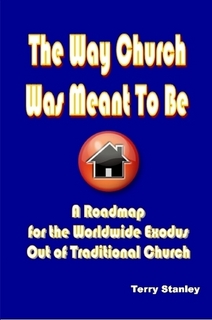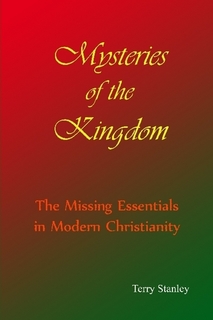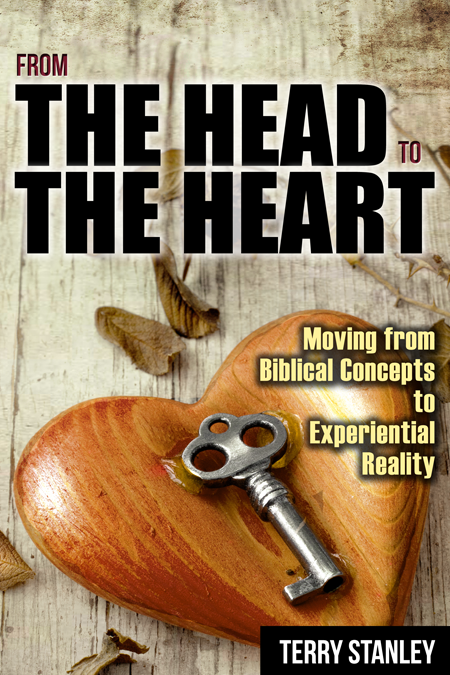The modern day organized church is kept in motion and built largely by money. Today in the church we have impressive buildings, big fancy signs, strategic locations, television ads, yellow page ads, radio spots, programs for every possible need, nurseries, salaried professionals, date night, pizza parties, youth group activities, ski trips to keep the kids happy, fancy suits, expensive audio systems, automatic retractable video screens, and million dollar family recreation centers. All of this takes massive amounts of cash. Yet without these things, the church membership would be drastically cut.
The tithe is an Old Testament requirement. But modern church teaching has twisted the scriptures and kept the tithe requirement alive in order to fund itself. The New Testament church did not need money. It ran on power. It ran on passion. It was kept alive and it continued to grow because of the life that it had. The modern day traditional church is mostly void of life, therefore, it has to prop itself up with hype and show in order to replace the life, in order to attract members, in order to exist. Under the New Covenant that we are in, Jesus does not require a tenth of our incomes, He requires ALL of it.
Let me explain. The large impressive buildings attract people. The buildings give the illusion and promise that there is something there, that there is something established. Think of a bank building for example. They are fancy on purpose. They have polished granite countertops, expensive lobbies, and marble floors. Why? They do this to provide the atmosphere of wealth so that there is the “feeling” of security. You wouldn’t want to put your money in a place that was built like a shack would you?
In your average traditional church today, how many people would still come if you threw away all of the extras and began meeting in simple, humble ways? What if we met in a park under a pavilion? What if we met in a living room?
What if there were no nursery or children’s church? Fathers would be responsible for teaching their kids the Bible at home. Fathers would require children to sit still during a church meeting. No paid professional to bring the music, but each member would come with their hearts filled and with songs to bring. Who would still come if all the church had was what the New Testament Christians had? Without all the trappings, without the pomp and show – who would have ever attended a traditional meeting in the first place?
Shouldn’t this bother us? What if a large portion of the people were only coming for all the extras? What if they were only coming for the programs? Would we really still want them to come if they weren’t coming for the right reasons? Jesus knew that the majority people followed Him for the food and miracles. He turned to them and said, “Unless you eat my flesh and drink my blood, you have no part with me.” Then they left. He knew they would leave. Would we ever say something that we knew would make people leave? Quite the opposite.
What should we do?
We all know about the tithe. The tithe was a tenth portion given by Israel to the Levitical priests. What about tithing in the New Testament?
There is not a direct commandment in the New Testament to pay tithes. But we do have some examples of how to relate to money and giving. Jesus said that unless you give up all your possessions you cannot be my disciple. In Luke 18:12 Jesus tells us of the man who fasted twice a week and paid tithes of all he had, but the tax gatherer who said, “I’m a sinner,” was justified instead. Then there is the widow who gave very little compared to the Pharisees, but she gave all that she had. Jesus said that because she gave all that she had, she had given more than anyone else. The New Testament economy is the economy of the Kingdom of God. It’s the opposite of the kingdom of man. The more you give away, the richer you are in the Kingdom. The first is last, the last first. The humble brother of low circumstances ought to glory in his high position. We don’t get it though. We think that if we pay our 10% that we’ve covered the base and did what God expects. We are completely missing the point.
It should also be noted that a big reason for paying tithes these days is in order to fund the salaries of the leadership. If we come to a Biblical understanding of offices and gifts, we will see that this practice doesn’t really make any sense. Someone who has a gift of shepherding (a pastor) is no different than someone who has a gift of prophecy, teaching, or evangelism.
Local Brothers Should Not Be Paid a Salary
Let’s take a situation where we have a local brother who lives among us and shares life with us. This local brother happens to function in the gift of prophecy. Because he functions as a prophet, would we ever pool our money together and pay him a salary? What about a brother who teaches among us? Should we pay his living for him while he lives locally among us and shares life among us, just because he teaches?
Let’s look at a totally different situation. If there were a brother or family among us who was going out and traveling to different cities to preach the gospel or function in their gifts – they are going to need money for traveling expenses. They are going to need support to cover their financial base while they are gone. These situations ought to be supported financially by the local church. This was the apostles case in the new testament when they were “preaching the gospel”. The traveling brothers should be supported financially.
Just like the apostle Paul (apostle means “one who is sent out”) who traveled from region to region and city to city – one who is sent out, someone who is traveling, someone who is on a journey in which the sole purpose of the journey is to do the work of the Lord, these people ought to be supported in their journey by the local assembly who is sending them. But to pay for the livelihood of a brother who lives among us, just because he has a particular gift or because he teaches a lot is simply the results of a confused and contrived tradition of men.
In the new testament letters, you can see very practical examples of how the early church lived. Paul writes at the end of Philippians that they gave him a gift to meet his needs. It seems clear that it is a financial gift. Paul also tells the Corinthians in I Cor.16 to set aside money at the first of the week so that no collections are to be made when he comes. But he goes on to explain that this money is to be sent on to Jerusalem with someone other than himself.
Paul says that “those who preach the gospel have the right to get their living from the gospel”…but everyone always leaves out the second part. He did not take advantage of this but chose to “work day and night” so as to not be a burden to any. This is a good heart.
In looking closer at Paul’s quote of “those who preach the gospel ought to get their living from the gospel,” I think that there is strong evidence that supports the fact that Paul was speaking of people like himself who are extra-local and who are actually traveling and preaching the good news. “One who preaches the gospel” is traveling from town to town.
Local leaders and pastors are not usually traveling and “preaching the gospel.” They are typically doing a lot of teaching, which is good and necessary, but the gospel is a very specific thing. After someone or some city has heard the gospel, they’ve heard it. It’s time to go on to the next town or region – which is why those who solely “preach the gospel” should be offered financial support. To preach the gospel, as Paul was speaking of, has in it’s meaning the traveling “bringer of good news”, who would be hindered if he were to have to deal with paying for his own expenses while doing such a work.
Local brothers on the other hand, may easily operate in their gifts while working a job as well. Some may think that it would be impossible for their local pastor or leader to work a regular job while performing his duties. That’s because most of the duties a pastor does are the duties of a typical business executive – which is what we’ve made the church to be – a business. Marketing campaigns, committees, budget analysis, secretaries, buildings, administrative duties, etc., all are the results of us modernizing, westernizing, and adding to the church things which do not need to be.
Since we’ve done all of this with the church, we now have to pay someone to oversee all of this, which has little or nothing to do with overseeing the lives of the people.
The Old Testament tithe was for the priest and for the temple. Now, under the New Covenant that we are in, we are all priests. Secondly, the church has now become the temple. He inhabits us, not a building or a tabernacle. The Old Testament was a picture of the real thing that now is and is still to come. We don’t need to pay any Levites. There are no more priests to hear God for us. We can all go to God directly. The modern day separation of clergy and laymen is a tradition of men based on the Old Testament Levitical priesthood. We are all to be just brothers with no separation of clergy. We are all clergy now. Or, you could say we are all laymen now. In fact, based on the example of the apostle Paul, the so called “ministers” we know, ought to go get themselves a job.
“What am I supposed to do with my tithe then?” people ask me. First of all you need to remove the word from your vocabulary. It is not New Testament. That’s like asking, “Where are we going to sacrifice the animals now?” You are now free. Use your money to serve the Lord with however He leads you, with as much or little as you are led of God. Give money to people who need it. Buy some tracks and hand them out on the street corner. Have a big BBQ for the neighborhood. Use it for evangelism and for giving to the needs of the saints. It all belongs to the Lord now. He gave it all to you anyway. Do with the money in your charge as the Lord puts in on your heart.
Our tendency is to assume that the principles and methods that are true in the earthly and natural economy are also true in the heavenly economy as well. However, the economy of the Kingdom of God is usually opposite that of man’s economy. “The things that are highly esteemed by men are detestable in the eyes of God” (Luke 16:15).
We think that because it’s wise to save and stockpile money in the earthly economy that those same principles should transfer into God’s kingdom as well. Jesus gave us a different example. Good stewardship in the economy of God’s kingdom is to actually give your money away. Jesus did a lot of things in relation to money that speaks against the common teachings that exist today in the church. Jesus actually put a thief in charge of the money box, which would totally go against man’s conventional wisdom (John 13:29). If a money plate is passed in a Christian meeting, we ought to encourage those who have need to take money out of the plate.
The covenant that we are in only has one rule. It’s the rule of love. There is only one law now in the New Covenant. It’s the law of the Spirit. There is no list of rules that you have to go by anymore. God has set us free in order to serve Him in a new and living way.



